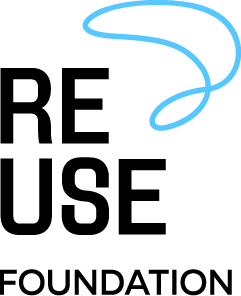Featured
STEP BACK IN TIME WITH REUSE FOUNDATION! |
|

|
REUSE Foundation promotes reuse, but it’s not a new idea. Reuse is how we used to purchase and consume many products. Refill and reuse systems were the norm, with durable packaging and localised supply chains that brought economic and environmental benefits.
In many countries, milk was delivered to homes in glass bottles, which were washed, refilled, and reused by dairies. Customers left empty bottles on their doorstep to be collected and replaced with full ones. In parts of Asia, tingi stores offered dry goods like grains, spices, and oils sold loose or in reusable containers. Customers brought their own jars or used paper to carry purchases. Soda companies used durable glass bottles with a deposit-return system. Customers paid a small deposit, which was refunded when they returned the empty bottles. And in markets worldwide, produce and goods were sold unpackaged, with buyers bringing baskets or cloth bags for transport. These models made products available without plastic waste and fostered community relationships between producers and consumers. It's all very simple and some of it still happens. We think we need a lot more of it. Traditional models can help guide our thinking and technological advances can help overcome the logistical and scale challenges reuse systems can face. The transition will take a lot of effort, but it’ll be worth it. Join us as we head back to the future![Image Credit: © Fotografía histórica de Nationaal Archief] |
Highlights
Knorr Adopts Recyclable Paper For Stock Cubes |
|
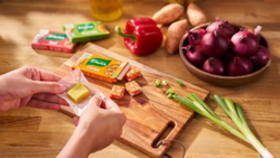
|
Unilever’s Knorr brand is replacing its multi-layer aluminium wrapper to recyclable paper in the UK. Following a successful pilot in Tesco, it will be rolled out across all retailers and the core stock cube during this month. [Image Credit: © Unilever] |
Coca-Cola Fails to Increase Reusable Packaging Goals |
|
.jpg?width=280)
|
A report from Oceana highlights Coca-Cola’s lack of significant progress toward its reusable packaging commitments, potentially contributing to millions of plastic bottles entering oceans annually. Despite pledges to increase reusable bottles to 25 percent by 2030, the share in 2023 was 14 percent, unchanged from the previous year. Oceana argues that this failure exacerbates the global plastic waste crisis and that achieving the 25 percent target would avoid over 100 billion Coca-Cola plastic bottles annually. [Image Credit: © Oceana, Inc.]
|
Unilever Joins Circle Alliance For Packaging Circularity |
|
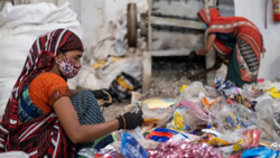
|
Unilever has joined USAID and EY in forming the Circle Alliance, a $21 million public–private initiative to scale solutions focused on reducing plastic use and tackling plastic waste. It aims to support entrepreneurs and small businesses along the plastics value chain, support women’s economic empowerment and improve livelihoods and protect the environment by accelerating circular economies. CIRCLE’s initial focus is India, Indonesia, Vietnam and the Philippines, with expansion expected to other markets through new partnerships and funding, and it builds on the TRANSFORM accelerator scheme, led by Unilever, EY and the UK’s Foreign, Commonwealth & Development Office.[Image Credit: © Unilever]
|
Microplastics Found Accumulating In Human Brains And Organs |
|

|
Recent research highlights the growing accumulation of microplastics in critical human organs, including the brain, and scientists are calling for global action on plastic pollution. Studies have detected microplastics in various human tissues, such as lungs, reproductive organs, and bone marrow. A pre-print paper of a recent study found brain samples contained 10-20 times the level of microplastics found in other organs. The impact of microplastics on human health is still unclear but may increase the risk of oxidative stress, cardiovascular disease and other health conditions. The rising concentration of plastic in human bodies mirrors growing environmental pollution levels.[Image Credit: © Rahul Pandit from Pexels]
|
New Biodegradable Material Targets Microplastics in Cosmetics |
|

|
Teysha Technologies in the UK has developed a biodegradable material called AggiePol that could eliminate 8,700 tonnes of microplastics used in cosmetics annually across Europe. Made from natural feedstocks like starch, it can reportedly replace microplastics in products such as shampoos and foundations. The material is designed to integrate seamlessly into existing cosmetics production processes.[Image Credit: © TEYSHA TECHNOLOGIES LIMITED]
|
Companies Continue To See Lightweighting As A Key Weapon Against Plastic Waste |
|
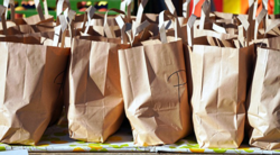
|
Reducing the weight of packaging - lightweighting - can be an effective way to loweritsenvironmental impact. In addition to reducing plastic use, companies can lowercarbon emissions associated with transportation and raw material production. Henkel, for instance, reduced the thickness of its Taft hairspray cans, saving over 15 percent in materials and water used during production,preventing about 3,500 metric tonnesof CO2 and 900,000 cubic meters of water annually.
Lightweighting offers significant benefits but brings challenges too. Switching from glass or aluminum to PET may lower carbon footprint but makes the material less likely to be recycled. And reducing the mass of plastic used in packaging can make it less economically attractive to recycle too, meaning some lightweighted packaging is more likely to end in landfill. [Image Credit: © Matthias Böckel from Pixabay] |
Coca-Cola Tests 'Closed Loop' Recycling at Paris Olympics |
|
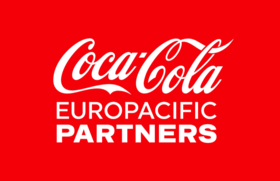
|
Coca-Cola successfully trialed a "closed loop" recycling system at the Paris Olympics, recycling bottles used during the Games for reuse in the Paralympics. This initiative aligns with Coca-Cola's "World Without Waste" goal to collect and recycle a bottle or can for every one it sells by 2030. The trial, which reduced the usual recycling cycle from four months to under four weeks, included 700 drink fountains offering refillable options and beverages in returnable or recycled packaging. The company is evaluating lessons from Paris for future recycling schemes, including the UK's Deposit Return Scheme currently set to launch in 2027. The new Labour government has said it aims to launch the DRS before October 2027. Coca-Cola says it supports DRS to enhance recycling rates and reduce plastic waste.[Image Credit: © Coca-Cola Europacific Partners]
|
New Labour Government Aims To Bring Forward UK’s DRS Scheme |
|
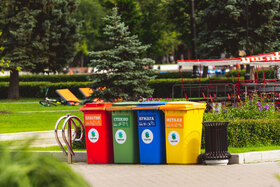
|
In a statement at the beginning of the month, The UK’s new nature minister Mary Creagh, whose responsibilities include the circular economy, confirmed the new Labour government plans to roll out a UK-wide deposit return scheme for Polyethylene Terephthalate bottles, as well as steel and aluminum drinks cans, ahead of the October 2027 date originally proposed back in March by the previous Conservative government. This is predicted to boost the UK’s circular economy, have a substantial positive environmental impact and make UK citizens attribute greater value to the plastics and metals that they usually disposed of. [Image Credit: © Vlad Vasnetsov from Pexels]
|
Budweiser Budvar UK Settles Legal Dispute With The Environment Agency |
|
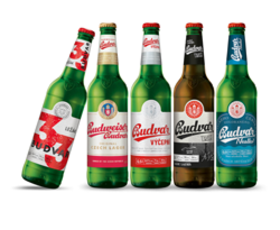
|
After claiming it was unaware of its need to adhere to UK recycling rules and legislation, Budweiser Budvar UK contributed £414,000 to the ‘Keep Britain Tidy’ scheme, following a legal agreement with the Environment Agency. This allows them to avoid prosecution and also aids the existing renowned environmental scheme. The company says it’s now ensuring adherence to all required policies, and this instance has been a motivation for other companies in the UK to ensure that they are doing the same. Budweiser Budvar had not registered for the Producer Responsibility Obligation regulations on packaging, and it should have done so in 2004 under, which apply to products placed on the UK market regardless of whether they are made in the UK or imported. These regulations ensure that packaging makers and distributors contribute to credible waste recovery and recycling.[Image Credit: © BUDĚJOVICKÝ BUDVAR, N.P.]
|
Plastic Packaging Tax In UK Sees Revenues Fall 6% Year-On-Year |
|
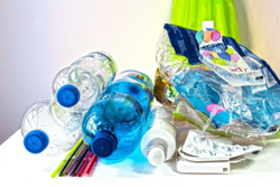
|
A bulletin released by The Department for Environment, Food and Rural Affairs revealed that the Plastic Packaging Tax collected 6 percent less in the last financial year than the previous. Of the total tonnage of plastic packaging manufactured in and imported into the UK in this period, 42 percent was declared as taxable under the PPT. Of the remaining 58 percent, 11 percent was either exported, intended for export or converted and the remainder was exempt, mostly because contained 30 percent or more recycled plastic. Zoe Brimelow, a director at packaging manufacturer and consultancy Duo, said: “A reduction in second year PPT revenues may indicate a shift towards more recycled-content plastic packaging, but we still need more context to properly understand this and the effectiveness of the tax.” [Image Credit: © Stefan Schweihofer from Pixabay]
|
DEFRA Publishes Illustrative EPR Fees |
|
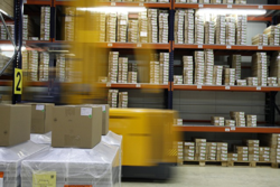
|
The Department for Environment, Food and Rural Affairs has released initial illustrative base fees for year one of the extended producer responsibility for packaging (pEPR) scheme. Fees will be incurred from 1 April each year, based on packaging supplied by registered producers for the preceding calendar year. In the second year of EPR, fees will be modulated to ensure packaging materials with a lower environmental impact will be the least expensive for producers to use, Defra said. The types of packaging which will be subject to higher or lower (“modulated”) fees, and the consequential sub-categories of packaging that would need to be reported in 2025, will be released in Autumn 2024.[Image Credit: © Jens P. Raak from Pixabay]
|
UBL Supports Bangladesh Waste Workers During Unrest In The Country |
|
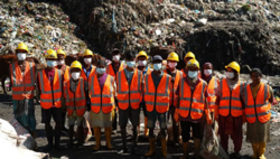
|
Unilever Bangladesh has launched an emergency humanitarian initiative to assist over 2,100 waste workers from 41 wards in Chattogram, Bangladesh, amidst an ongoing unrest that has disrupted their livelihoods. Partnering with Young Power in Social Action, UBL provided financial aid to these workers starting August 1, 2024, to alleviate their financial instability. UBL has been operating Bangladesh’s largest municipal-backed plastic waste initiative since 2022, with these workers playing a crucial role. Despite the challenges, the project continues to collect plastic waste on a limited scale to sustain the workers' income. UBL says its long-standing commitment to safety, environmental stewardship and community support underscores its dedication to creating a sustainable and empowered future for Bangladesh.[Image Credit: © Unilever]
|
New Refillable Innovations Underscore Moves Towards Reuse |
|
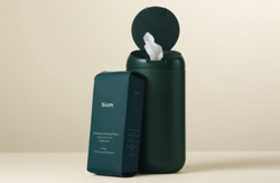
|
As the reusable and refillable market continues to offer innovations across categories, the range of formats includes cartons, pouches, glass jars and plastic containers. A new refillable cleaning wipes brand, Biom, has launched at Target as part of the US retailer’s initiative to introduce more sustainable products. Biom’s reusable dispenser comes in neutral colors and the biodegradable wipes are available in refill packs for around $7. These wipes, made without polyester or polypropylene, offer a convenient, clutter-free alternative to traditional brands. French luxury house Hermès has introduced vibrant, refillable glass bottles for its Le Bain personal care collection, an initiative that is part of Hermès’ broader effort to combine luxury with sustainability. GAIA Skincare, a female-founded spa and skincare brand from the UK has launched a new refillable amenity range with a focus on sustainability. These large brand movements hopefully demonstrate a move to more sustainable consumer beauty products. [Image Credit: © PRFoto and biom]
|
Tethered Bottle Caps Are Irritating But Necessary |
|
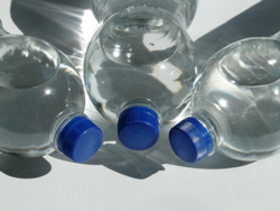
|
The ‘tethered’ design of new bottle caps has caused some irritation amongst consumers but they are a more environmentally friendly and healthier option than detachable lids. When lids are untethered, they are often dropped or lost, potentially blown by the wind or carried by the rain into drains or rivers that flow out into the sea. Bottle caps are among the most common forms of plastic waste found on Europe’s beaches. And even if they do get to a recycling bin and then processing plant, their diminutive size is a problem. “Caps are filtered out through sieving drums because they are too small,” explains Ross Lakhdari, a circular economy expert at PA Consulting. “Generally, any item smaller than two inches in any dimension risks being lost during this screening process.” When attached to a bottle they are less likely to be lost as waste or end up in the ocean, where they can endanger wildlife such as turtles and birds. Animals can mistake them for food [Image Credit: © Hans from Pixabay]
|
Ocado Trials Refillable Packaging For Everyday Products |
|
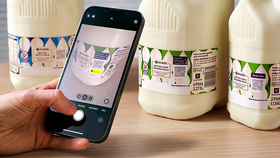
|
Ocado has launched a trial for selling everyday products in refillable packaging, aiming to reduce single-use plastic waste. Customers can purchase items such as laundry products and dry food staples in durable containers, which can be returned for refills. Ocado says each reusable container could be used 60 times or more. The trial is part of a broader trend among retailers to explore eco-friendly packaging options and could potentially lead to a wider rollout if successful. [Image Credit: © Ocado Retail Sustainability]
|
Nature Benchmark Gauges How Much Companies Assess Their Impact On Nature |
|

|
Nature Benchmark from The World Benchmarking Alliance looks at how over 800 major companies from many different sectors are impacting nature, using data from 2022 to 2024. It found just 5 percent have assessed their impact and fewer than one in 10 have looked at their dependence on nature. On plastic, 43 percent provide evidence of plastic reduction but only 19 percent also provide the metrics to back up their claims. Overall performance is low, averaging 15 from 100. The best industries were Personal & Household Products, averaging 26, and Pharmaceuticals & Biotechnology at 20. Companies in the two sectors were more likely to publish sustainability reports. Public companies performed better than privately-owned companies.[Image Credit: © World Benchmarking Alliance]
|
France Failing In Face Of Challenges To Reduce Plastic Waste |
|
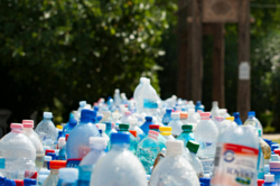
|
A recent report reveals that France is significantly lagging in meeting its recycling targets, particularly in reducing plastic waste, and will have to pay the EU €1.6 billion in fines for recycling just 23 percent of its plastic waste versus its target of 40 percent. Despite efforts to enhance waste management and promote circular economy practices, France's progress remains slow compared to other European nations. The report highlights the urgent need for more effective policies and infrastructure improvements to address the growing plastic waste crisis. In 2021, France recycled 8.5kg of plastic per capita; Germany managed almost 20kg and Ireland 20.7kg.[Image Credit: © Mali Maeder from Pexels]
|
Consumer Confusion Hampers Plastic Waste Reduction |
|
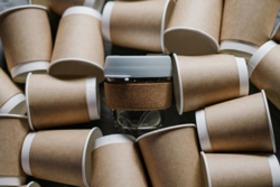
|
A survey of 1,000 consumers across the UK by Sapio Research, commissioned by Celebration Packaging, reveals significant consumer confusion about recyclable and compostable packaging. While 68 percent of respondents believe it’s important for packaging to be certified recyclable, many struggle with correctly identifying and disposing of such materials. Only 34 percent regularly rinse and separate packaging for recycling, with younger consumers being less diligent. The findings highlight the need for clearer labeling and better consumer education to effectively reduce plastic waste.[Image Credit: © Cottonbro Studio From Pexels]
|
Unilever, Standard Bank Mark Mandela Day With Beach Clean |
|
.png?width=280)
|
In celebration of Mandela Day, employees from Unilever South Africa and Standard Bank helped clean the coastal area at Dakota beach. The annual clearance started four years ago, and is led by Alliance to End Plastics Waste, Inkwazi Isu and SA Health. Another group employees from Unilever and Standard Bank helped refurbish and clean rooms at the William Clark Othandweni Children and Youth Centre. [Image Credit: © Unilever]
|
UK Reviews Plastic Waste Reduction With DRS Reforms |
|
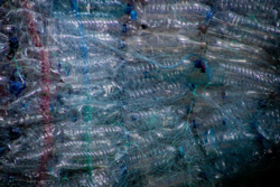
|
The UK Government is reviewing packaging reforms, focusing on the Deposit Return Scheme to reduce plastic waste. The scheme, which incentivizes recycling of plastic bottles and cans, had been pushed back to 2027 by the previous Conservative Government. While many support the DRS, debates continue over whether to include glass containers due to cost and complexity concerns. The government aims to accelerate progress toward a zero-waste economy, but the effectiveness of these measures will depend on the details and implementation.[Image Credit: © Magda Ehlers from Pexels]
|
